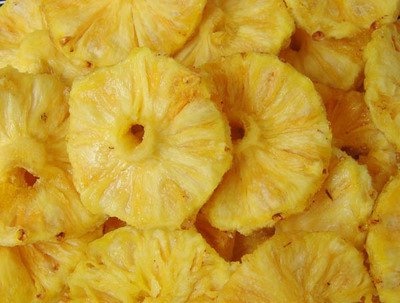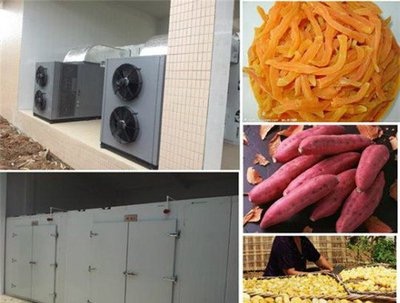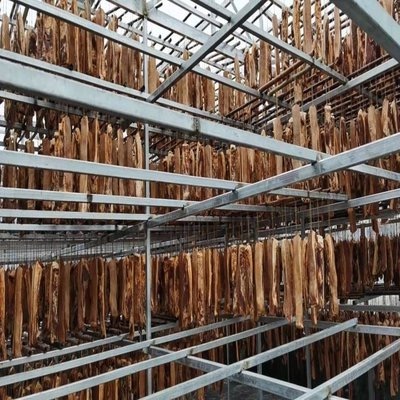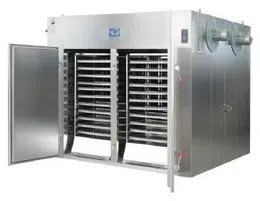
Content Menu
● Introduction
● Understanding Heat Pump Dryers
>> How Do Heat Pump Dryers Work?
● Benefits of Heat Pump Dryers
>> Additional Advantages
● Choosing the Best Affordable Heat Pump Dryer
>> 1. Energy Rating
>> 2. Capacity
>> 3. Features
>> 4. Price Range
>> 5. Brand Reputation
● Top Affordable Heat Pump Dryers for 2024
>> Detailed Reviews of Selected Models
>>> Hisense DH5S102BW
>>> Russell Hobbs RH9HPTD111
>>> Samsung Series 6 DV90T620LN
>>> Beko DPHX80460W
>>> Bosch Serie 4 WTH85223GB
● Installation Considerations
>> Space Requirements
>> Electrical Requirements
● Maintenance Tips
>> Troubleshooting Common Issues
● Conclusion
● Frequently Asked Questions
>> 1. What is a heat pump dryer?
>> 2. How much can I save on energy costs with a heat pump dryer?
>> 3. Are heat pump dryers worth the investment?
>> 4. Can I install a heat pump dryer anywhere in my home?
>> 5. How often should I clean my heat pump dryer?
Introduction
In recent years, heat pump dryers have gained significant popularity due to their energy efficiency and cost-effectiveness. As a leading manufacturer of food drying machines in China, we recognize the importance of understanding the market dynamics surrounding heat pump dryers, especially for those looking for the best affordable heat pump dryer options. This article will explore the features, benefits, and considerations when choosing a heat pump dryer, along with a focus on their affordability and efficiency.

Understanding Heat Pump Dryers
Heat pump dryers utilize a refrigeration cycle to dry clothes. Unlike traditional dryers that vent hot air outside, heat pump dryers recycle hot air within the machine, making them more energy-efficient. This technology not only reduces energy consumption but also minimizes wear and tear on fabrics.
How Do Heat Pump Dryers Work?
1. Air Intake: The dryer draws in air from the surrounding environment.
2. Heating: The air is heated using a heat pump system.
3. Drying: The warm air is circulated through the drum, evaporating moisture from the clothes.
4. Condensation: The moisture-laden air is then cooled, causing the water to condense and collect in a reservoir or drain away.
5. Recycling: The cooled air is reheated and reused, creating an efficient drying cycle.
Benefits of Heat Pump Dryers
- Energy Efficiency: Heat pump dryers consume significantly less energy compared to traditional vented or condenser dryers. They can reduce energy bills by up to 50%.
- Gentle on Fabrics: The lower drying temperatures are kinder to clothes, reducing wear and tear.
- Environmentally Friendly: By using less energy, these dryers contribute to lower carbon footprints.
- No Ventilation Required: They can be installed in any location without the need for external venting.
Additional Advantages
Beyond the primary benefits listed above, heat pump dryers offer several other advantages:
- Versatility: Many models come with various drying programs tailored for different fabric types, ensuring optimal care for your garments.
- Quiet Operation: Heat pump dryers generally operate more quietly than traditional models, making them suitable for apartments or homes where noise is a concern.
- Smart Technology Integration: Some modern heat pump dryers feature smart technology that allows you to control and monitor your dryer remotely via smartphone apps.
Choosing the Best Affordable Heat Pump Dryer
When searching for the best affordable heat pump dryer, consider the following factors:
1. Energy Rating
Look for models with high energy efficiency ratings (A++ or A+++). These ratings indicate lower running costs and better performance.
2. Capacity
Choose a dryer that suits your household needs. Common capacities range from 7 kg to 10 kg. For larger families or frequent laundry needs, opting for a model with a higher capacity can save time and energy.

3. Features
Modern heat pump dryers come with various features such as:
- Sensor Drying: Automatically detects moisture levels in clothes and adjusts drying time accordingly.
- Multiple Drying Programs: Offers specific settings for different fabric types (e.g., cotton, synthetics).
- Delay Start Options: Allows you to set the dryer to start at a later time, which can be useful for taking advantage of off-peak electricity rates.
- Reversible Door: Some models feature reversible doors for flexible installation options.
4. Price Range
While heat pump dryers tend to be more expensive upfront than traditional models, many affordable options are available that balance cost and efficiency.
5. Brand Reputation
Research brands known for their reliability and customer service. Reading reviews from other users can provide insights into the performance and durability of specific models.
Top Affordable Heat Pump Dryers for 2024
Here are some of the best affordable heat pump dryers currently available:
| Model Name | Capacity | Energy Rating | Price Range |
| Hisense DH5S102BW | 8 kg | A++ | $699 |
| Russell Hobbs RH9HPTD111 | 9 kg | A++ | $440 |
| Samsung Series 6 DV90T620LN | 9 kg | A+++ | $549 |
| Beko DPHX80460W | 8 kg | A+ | $499 |
| Bosch Serie 4 WTH85223GB | 8 kg | A++ | $750 |
Detailed Reviews of Selected Models
Hisense DH5S102BW
The Hisense DH5S102BW is an excellent choice for those seeking reliability without breaking the bank. With an 8 kg capacity and an A++ energy rating, this model offers efficient drying while being gentle on fabrics. It features multiple drying programs tailored to various materials, ensuring optimal care.
Russell Hobbs RH9HPTD111
This model stands out due to its affordability and performance. Priced at around $440, it provides excellent value with its user-friendly interface and effective drying capabilities. Its compact size makes it perfect for smaller spaces without compromising on performance.
Samsung Series 6 DV90T620LN
Samsung is known for its innovative technology, and this dryer is no exception. With a capacity of 9 kg and an impressive A+++ rating, it not only dries clothes efficiently but also includes smart features that allow remote operation via smartphone apps.
Beko DPHX80460W
The Beko DPHX80460W combines affordability with functionality. Priced at approximately $499, this model offers good energy efficiency (A+) and a variety of drying programs that cater to different fabric types.
Bosch Serie 4 WTH85223GB
Bosch appliances are synonymous with quality and durability. This model features an A++ rating and comes equipped with advanced sensor technology that optimizes drying times based on moisture levels in your laundry.
Installation Considerations
Installing a heat pump dryer is generally straightforward since they do not require external venting. However, ensure there is adequate space for airflow around the unit and easy access to empty the water tank if not plumbed in.
Space Requirements
Before purchasing a heat pump dryer, measure your available space carefully. Ensure there is enough room not only for the unit itself but also for proper ventilation around it. Most manufacturers recommend leaving at least several inches of clearance on all sides to facilitate airflow.
Electrical Requirements
Check your electrical setup before installation; most heat pump dryers require a standard power outlet but may need dedicated circuits depending on their specifications.
Maintenance Tips
To ensure optimal performance of your heat pump dryer:
- Regularly clean the lint filter after each use.
- Check and clean the condenser unit periodically.
- Empty the water reservoir frequently if not connected to a drain.
- Inspect hoses and connections regularly for any signs of wear or damage.
Troubleshooting Common Issues
Even with regular maintenance, you may encounter issues with your heat pump dryer from time to time:
1. Dryer Not Heating: Check if the lint filter or condenser is clogged; clean them if necessary.
2. Long Drying Times: Ensure that you are not overloading the dryer; this can impede airflow and extend drying times.
3. Water Leakage: Inspect hoses and connections; ensure they are secure and free from damage.
Conclusion
Choosing a heat pump dryer can be a wise investment for your home, especially if you are looking for energy efficiency and long-term savings on utility bills. With various affordable options available in the market today, finding the best affordable heat pump dryer that meets your needs is easier than ever.
By considering factors such as energy rating, capacity, features, price range, and brand reputation, you can make an informed decision that enhances your laundry experience while being kind to your wallet and the environment.

Frequently Asked Questions
1. What is a heat pump dryer?
A heat pump dryer is an energy-efficient appliance that uses a refrigeration cycle to dry clothes by recycling warm air within the machine.
2. How much can I save on energy costs with a heat pump dryer?
Heat pump dryers can save you up to 50% on your energy bills compared to traditional vented dryers due to their lower energy consumption.
3. Are heat pump dryers worth the investment?
Yes, while they may have a higher upfront cost, their long-term savings on energy bills make them a cost-effective choice over time.
4. Can I install a heat pump dryer anywhere in my home?
Yes, heat pump dryers do not require external venting, allowing for flexible installation in various locations within your home.
5. How often should I clean my heat pump dryer?
You should clean the lint filter after every use and check the condenser unit periodically to maintain optimal performance.












